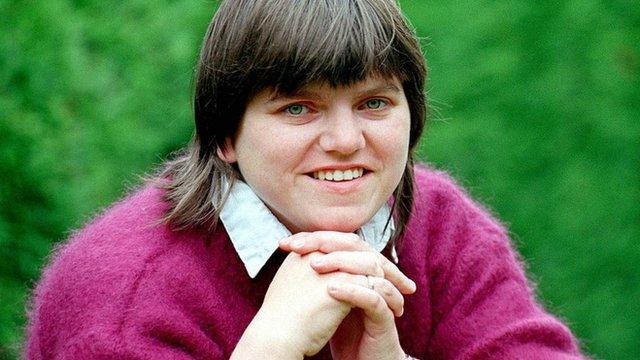Ealing vicarage rape victim Jill Saward dies
- Published
Watch: How Jill Saward changed women's lives
A woman who became a sexual assault campaigner after she was raped during a burglary at her father's vicarage has died after suffering a stroke.
Jill Saward, then 21, was sexually assaulted by two men in Ealing, west London, in 1986. Her father Michael, and her boyfriend were severely beaten.
At the end of the trial of her rapists, the judge said her trauma "had not been so great", sparking outrage.
Ms Saward was the first rape victim in the UK to waive her anonymity.
How vicarage rape case changed treatment of victims
She went on to use her public profile to campaign for the victims of sexual violence.
Ms Saward, 51, who was also known by her married name Drake, had three sons and lived with husband Gavin in Hednesford, Staffordshire.
In a statement, her family said she had dedicated the past 30 years of her life to helping other people.
They said Ms Saward had requested her organs be donated to others after her death.
"It gives us great comfort to know that our wonderful wife, mother and sister was able to help other people to the very end," they said.
Archbishop of Canterbury, Justin Welby, also paid tribute, tweeting, external: "Sorrowed to hear of the death of Jill Saward (Drake), heroic and remarkable campaigner for the victims of rape: much sympathy to her family."
In what became one of the most high profile criminal cases of the decade, in March 1986 four men broke into the vicarage home of Michael Saward.
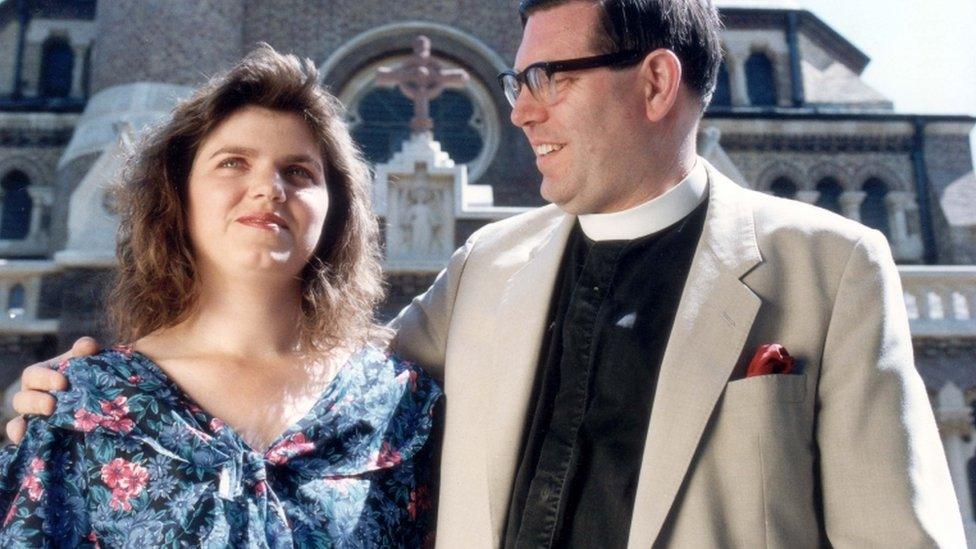
Jill Saward and her father Michael Saward outside St Mary's Ealing Parish Church
The churchman, who was at home with his daughter and her then-boyfriend David Kerr, answered the doorbell, only to be confronted by the knife-wielding intruders.
They broke into the house and, after demanding to know where the family kept their valuables, they attacked Mr Saward and Mr Kerr. Both men suffered serious injuries, including fractured skulls.
Two of the men then dragged Ms Saward upstairs to a bedroom, where she was repeatedly raped.
The case was the focus of huge media attention, not least because the two rapists received substantially shorter prison sentences than the man convicted only of burglary.
Robert Horscroft, then 34, was sentenced to 14 years in jail for his part in the burglary.
Martin McCall, then 22, was given five years for rape and a further five for burglary, and Christopher Byrne, also 22, was given three years for his part in the sexual assault and five for the burglary.
Mr Justice Leonard, the Old Bailey judge who made the comment about the extent of Ms Saward's ordeal, was censured for the remark and apologised for it later in his life.
Speaking to the PM programme, Alison Boydell, who co-founded the JURIES campaign, pays tribute to Jill Saward
"That reflected how little understanding there was," she later said.
"I'd been suicidal three times, I'd had post-traumatic stress disorder, which wasn't really recognised then."
By speaking out about her ordeal, she vowed to help tighten rape laws and called for better victim support.
'Forgiveness important'
In 1990, she published her memoir, Rape: My Story, and four years later set up a help group for victims and their families.
She also became a counsellor.
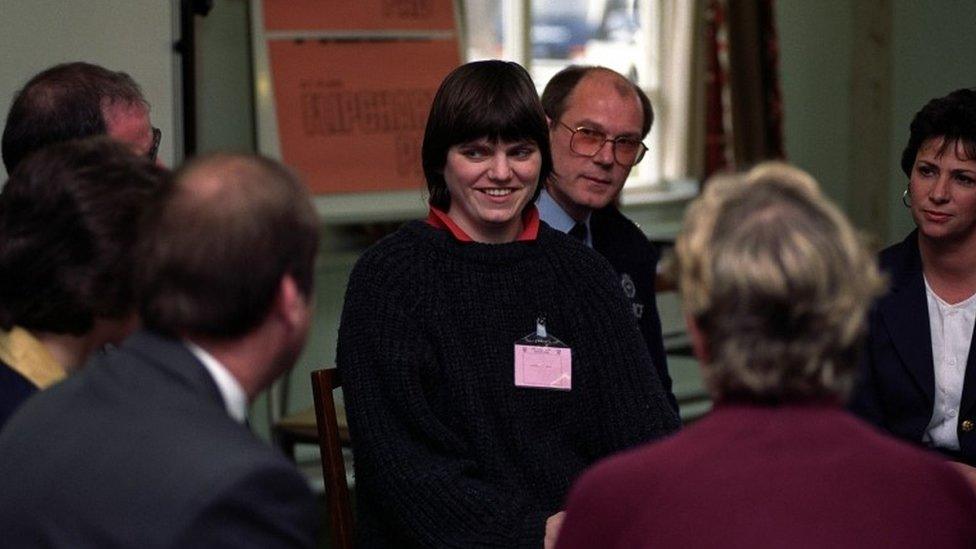
Jill Saward taking part in a course on violent crime in 1994
Among the causes she successfully campaigned for was the barring of accused rapists from cross-examining victims while representing themselves in court.
Ms Saward believed forgiveness was "very important".
"They'd destroyed enough, I didn't want them to destroy anything else. Forgiveness gave me that liberation, that freedom, to move on," she said.
In 1998, she came face to face with a member of the gang who devastated her life - but did not rape her - and told him: "You don't need to say sorry."
Speaking to the BBC in 2004, Ms Saward said she had come to terms with her public profile.
"Ealing vicarage rape victim - that's been my tag for the past 18 years... I make no complaint about this tag as it has enabled me to challenge politicians and work for change."
"I've been on TV and radio talking about the serious subjects of rape and forgiveness many times."
Ms Saward, who was born in Liverpool, stood for election to Parliament in July 2008 against then shadow home secretary David Davis.
In 2012 she welcomed proposals for tougher sentences on sex offence offenders.
And in 2015, she called a suggestion by MPs for sex crime suspects to be granted anonymity "insulting".
In a statement, the charity Rape Crisis said: "Jill Saward was a good friend and valued supporter of the Rape Crisis movement for three decades.
"Waiving her right to lifelong anonymity, she campaigned tirelessly for both legal and social justice for victims and survivors of rape and sexual violence.
"Jill was able to step outside of her own harrowing experience to highlight the needs and rights of all those impacted by sexual violence.
"Jill was courageous, pioneering and an inspiration. She will be sorely missed."
Polly Neate, chief executive of Women's Aid, said: "She made the journey from victim, to survivor, to campaigner."
- Published5 January 2017
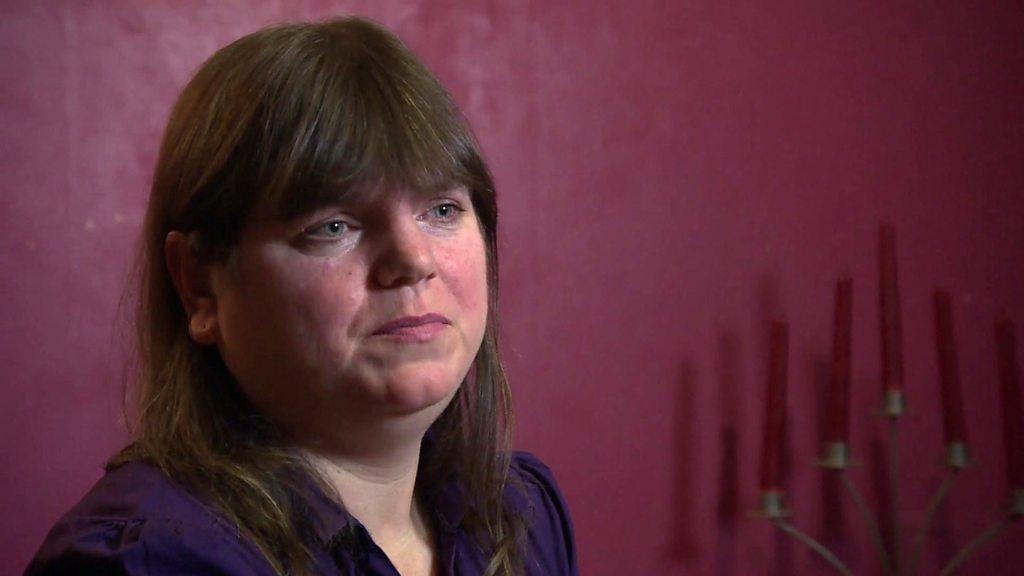
- Published5 January 2017
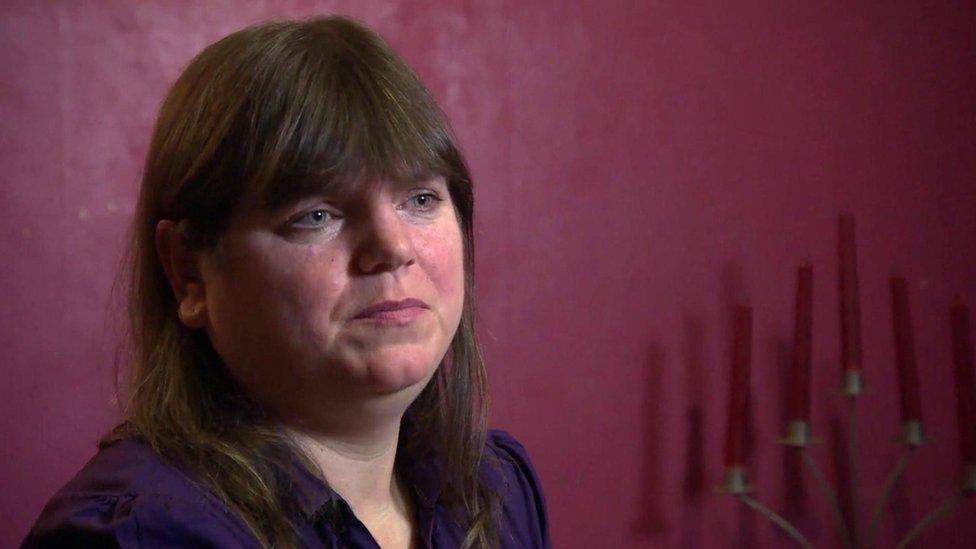
- Published12 December 2013
